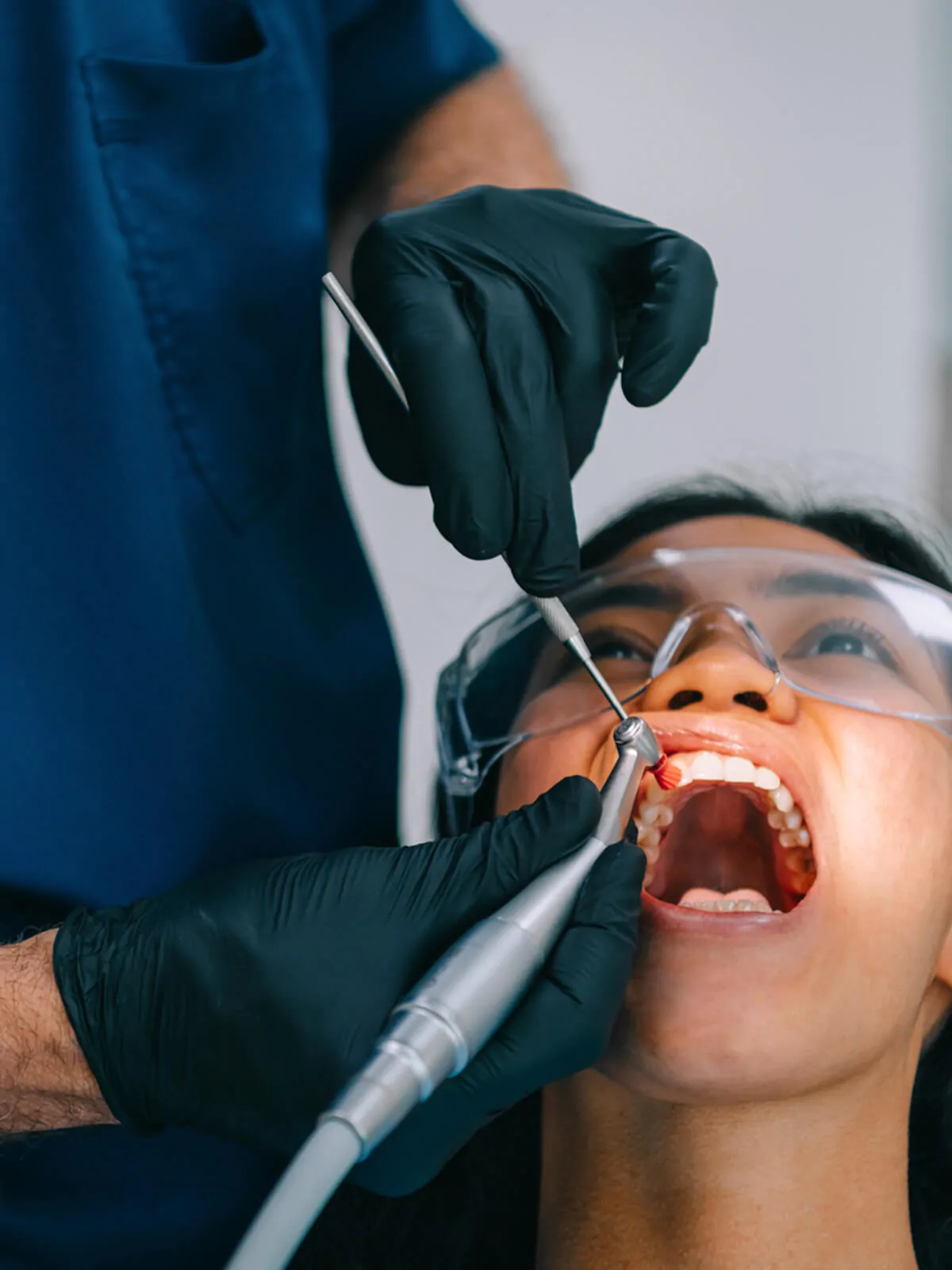Learn About Constant Dental Problems Your Dentist Can Solve
Recognizing frequent dental concerns is essential for preserving optimum oral wellness. Problems such as tooth cavities, gum condition, tooth sensitivity, poor breath, and dental caries are usual yet commonly neglected up until they end up being severe. Dentists have the expertise to detect and deal with these conditions, consequently avoiding additional issues. Routine dental visits and individualized care plans can deal with these issues efficiently, guaranteeing a much healthier and brighter smile. What details treatments do dentists utilize to combat these issues, and just how can early intervention make a difference? The answers to these concerns offer beneficial understandings into protecting your dental wellness.
Cavities
Dental caries, also referred to as oral decays, are a common oral health and wellness concern caused by the demineralization of tooth enamel as a result of acid manufacturing from bacterial plaque. This procedure starts when germs in the mouth metabolize sugars and starches from food, generating acids that wear down the enamel. Otherwise addressed without delay, this erosion can penetrate much deeper into the tooth, impacting the dentin and eventually the pulp, possibly leading to serious discomfort and infection.
The very early stages of tooth cavity development commonly existing as white spots on the tooth surface, indicating first demineralization. As the procedure proceeds, these places can become brown or black lesions, indicating extra comprehensive degeneration. Regular dental check-ups are essential for early detection, as dental caries in their incipient phases can be treated with remineralization methods, such as fluoride therapies.
Dental practitioners typically get rid of the corroded part of the tooth and fill the cavity with materials such as composite resin, amalgam, or ceramic. Preventative procedures, including excellent oral hygiene practices and nutritional adjustments, play a pivotal function in minimizing the risk of cavities.
Periodontal Disease
While dental caries stand for a substantial worry for dental health and wellness, one more important concern that demands interest is gum tissue condition. Understood as periodontal condition, gum tissue disease is an inflammatory problem affecting the cells surrounding and sustaining the teeth. It is mainly brought on by the accumulation of plaque-- a sticky movie of bacteria that creates on teeth.
Gum condition progresses via stages, starting with gingivitis, defined by redness, swelling, and bleeding gum tissues (dentist eugene or). If left untreated, gingivitis can escalate to periodontitis, where the inner layer of the gum tissue and bone pull away from the teeth, developing pockets that become contaminated. With time, the toxins generated by the microorganisms break down the bone and connective cells that hold teeth in area, potentially leading to missing teeth
Very early detection and treatment are vital. Expert oral cleanings and boosted oral hygiene techniques, such as cleaning twice everyday and flossing, can manage gingivitis. For advanced stages, therapies may include scaling and origin planing, antibiotics, or perhaps surgical interventions.
Normal dental check-ups play a critical function in taking care of and protecting against gum tissue illness. Dentists can determine early signs and advise appropriate interventions, ensuring the maintenance of healthy gum tissues and total oral wellness.
Tooth Level Of Sensitivity
Tooth level of sensitivity impacts numerous people worldwide, providing a typical yet usually distressing dental problem. This condition arises when the enamel, the outer protective layer of the teeth, is endangered, disclosing the underlying dentin. The dentin contains tiny tubules that lead directly to the dental pulp, where nerves reside. When revealed to stimuli such as hot, chilly, sweet, or acidic materials, these nerves are triggered, causing sharp pain or pain.
Several aspects add to enamel disintegration and subsequent tooth sensitivity, including hostile cleaning, acidic foods and beverages, periodontal economic downturn, and bruxism (teeth grinding) Additionally, oral procedures such as teeth whitening can momentarily heighten level of sensitivity.
Halitosis
An additional widespread oral problem that affects people' lives misbehaves breath, clinically labelled bad breath. This condition can be especially stressful, influencing individual interactions and self-worth. Halitosis typically originates from poor oral hygiene, which allows food bits to stay in the mouth, promoting bacterial development. These bacteria produce sulfur compounds, bring about unpleasant smells.

Dental experts play a crucial function in identifying and dealing with bad breath. They can determine the origin cause with an extensive evaluation and offer customized advice and treatment plans. Recommendations might entail boosting oral hygiene methods, such as regular cleaning and flossing, utilizing antibacterial mouth washes, remaining hydrated, and dealing with any kind of oral problems. In many cases, a reference to a professional might be necessary to take on underlying health issue adding to negative breath. Efficient management of halitosis not just boosts dental wellness yet also significantly boosts quality of life.
Dental Cavity

Stopping dental caries includes a combination of great dental health techniques and regular dental examinations. Cleaning teeth at the very least two times daily with fluoride toothpaste, flossing to eliminate plaque between teeth, and limiting the intake of sugary foods and beverages are essential preventive actions. Fluoride treatments, oral sealants, and professional cleansings offered by a dental practitioner can likewise play a significant role in fortifying enamel and avoiding degeneration.
Dental experts can eliminate corroded cells and restore the tooth with dental fillings made from materials such as composite material, amalgam, or porcelain. By resolving tooth decay without delay, dentists aid preserve oral structure and feature, making sure lasting dental health and wellness.
Conclusion
Addressing usual dental issues such as cavities, periodontal disease, tooth sensitivity, foul breath, and tooth degeneration is important for keeping optimum oral wellness and general well-being. Dentists possess the know-how to detect and treat these problems properly, making sure customized look after each person. Regular precautionary procedures and dental check-ups are essential in determining and handling these worries early, promoting a healthier and more confident smile over a lifetime.

Tooth degeneration, also understood as oral decays, happens when the enamel, the outer layer of the tooth, is deteriorated by acids produced by microorganisms in the mouth. Brushing teeth at least two times daily with fluoride toothpaste, flossing to remove plaque between teeth, and limiting the intake of sweet foods and beverages are vital preventative steps.Addressing typical oral concerns such as dental caries, periodontal illness, tooth level of sensitivity, bad breath, and tooth degeneration is essential for maintaining ideal oral health and total wellness.